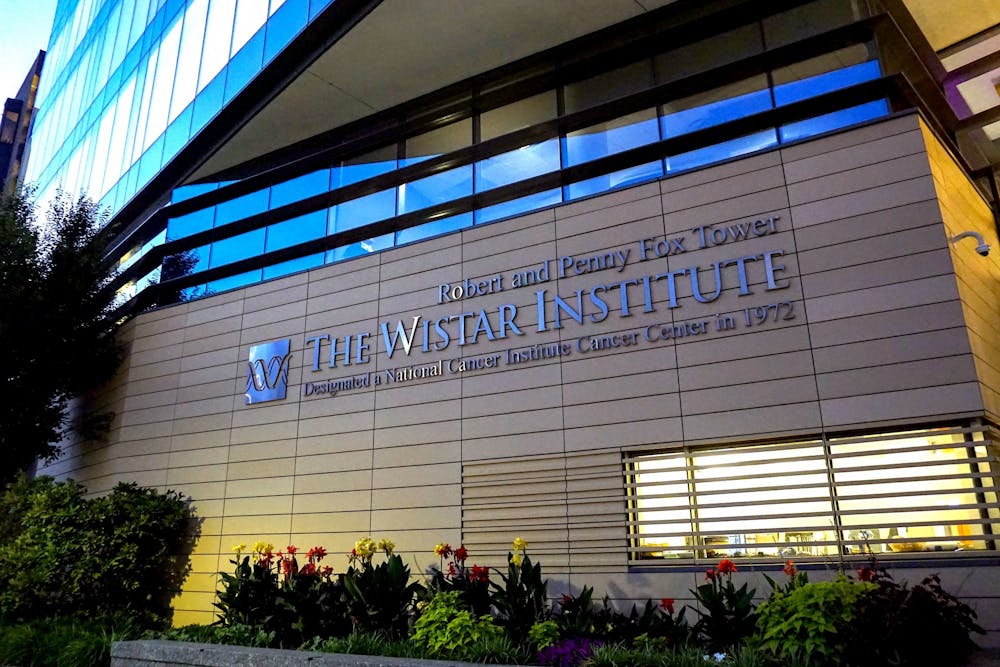The National Cancer Institute awarded Penn Medicine and the Wistar Institute an $11.7 million grant to find new ways to treat melanoma skin cancer, Penn Medicine News reported.
The Specialized Programs of Research Excellence, also known as SPOREs, is a five-year award to fund three new melanoma research projects. The purpose is to promote the efficient transition of new discoveries made in these institutions into therapeutics that treat skin cancer. SPOREs also includes a career enhancement program for underrepresented minorities in skin cancer research and a pilot award program to extend research into non-melanoma skin cancer.
Penn and Wistar had previously received the grant in 2014, when the team developed new resources, such as a tissue specimen core with more than 11,000 banked specimens. The National Cancer Institute renewed the multimillion dollar grant this year in an attempt to continue funding the efforts.
The grant will be focused on three main projects, which will help in the treatment of the fifth most common form of cancer and deadliest form of skin cancer: melanoma, Penn Medicine News reported.
The first project titled “Exosomal PD-L1 in immunotherapy resistance,” further develops an assay that can determine which melanoma patients will respond to immunotherapy through the analysis of exosomal PD-L1 blood levels – an immunosuppressive factor. The team will conduct clinical utility studies to demonstrate the response of this biomarker as a means to determine whether immunotherapy will work in treating melanoma.
The second project, “Targeting autophagy to improve immunotherapy in melanoma,” will develop a clinical trial that combines immunotherapy and autophagy inhibition, which enhances the efficacy of T cell killing melanoma cells. This project includes a PET scan that can track T cells as they enter a tumor and clear out damaged cells.
Lastly, the third and final project, “Neoadjuvant immunotherapy for early-stage melanoma,” will develop a clinical trial of neoadjuvant immunotherapy in stage IIB/C melanoma patients to find strategies for enhancing the immune stimulatory capacity of dendritic cells in the tumor.
Co-directors of SPOREs Ravi K. Amaravadi, an associate professor of Hematology Oncology in Penn’s Perelman School of Medicine and the co-leader of the Cancer Therapeutics Program in the Abramson Cancer Center (ACC), and Meenhard Herlyn, director of Wistar's Melanoma Research Center and professor in the Molecular & Cellular Oncogenesis Program in Wistar’s Cancer Center, will work together along with other Penn and Wistar faculty members throughout the five years of discoveries.
RELATED:
PennMed researchers receive $2.9 million to study racial disparities in heart disease
Penn professors receive prize for mRNA research that led to creation of COVID-19 vaccines
Both directors addressed the new award by acknowledging that this collaboration, once again, allows for new discoveries to be made.
“Our longstanding team approach to science and new therapies has been recognized by the NCI once again with this new SPORE grant. We can now expand on this collaboration — which has already led to important developments in melanoma,” said Amaravadi to Penn Medicine News.
Similarly, Herlyn emphasized the importance of the award towards promoting future research.
“Building on major breakthroughs by our team, we are poised to address crucial unanswered questions to improve immunotherapy response and identify new biomarkers to inform patient management and reduce therapy toxicity,” Heryn said.









